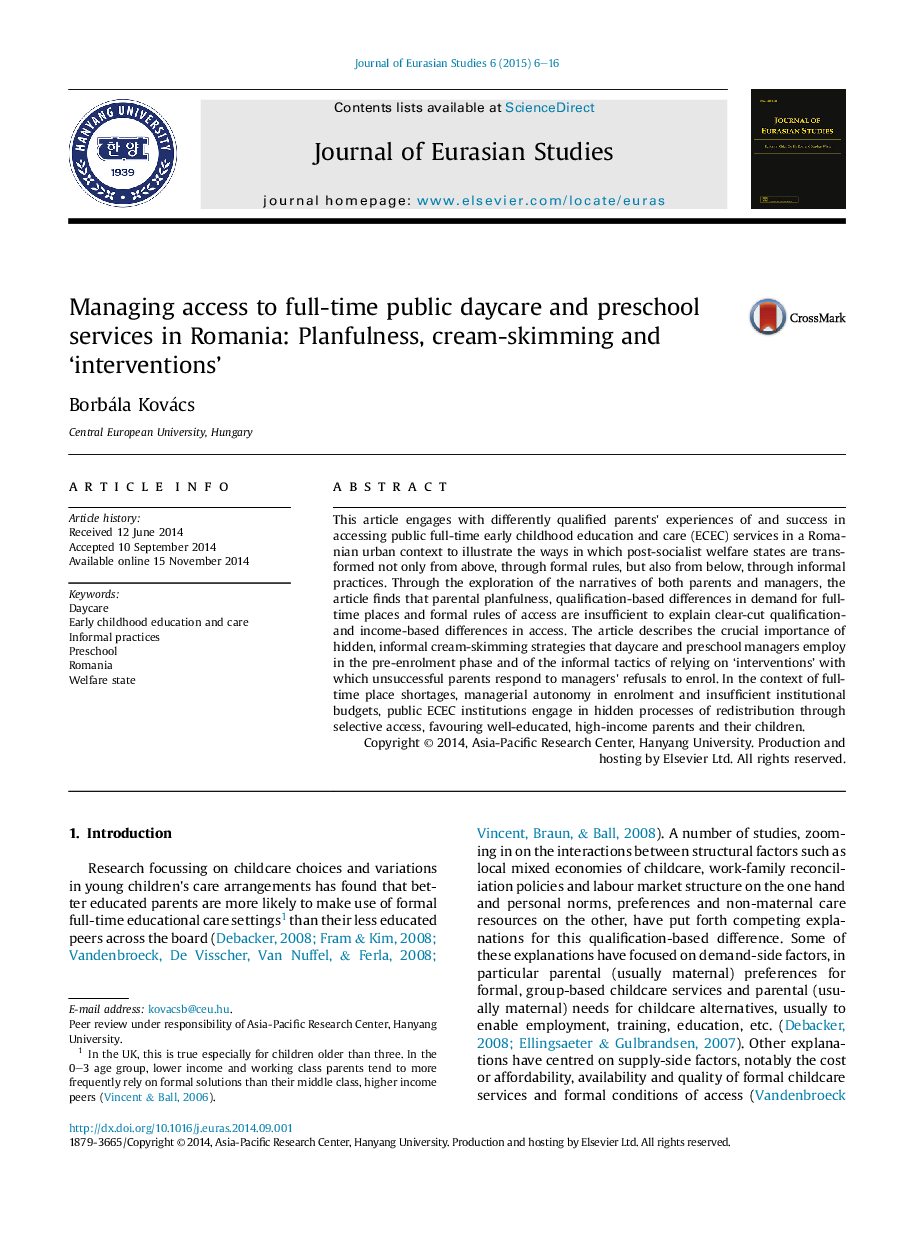| Article ID | Journal | Published Year | Pages | File Type |
|---|---|---|---|---|
| 1127230 | Journal of Eurasian Studies | 2015 | 11 Pages |
This article engages with differently qualified parents' experiences of and success in accessing public full-time early childhood education and care (ECEC) services in a Romanian urban context to illustrate the ways in which post-socialist welfare states are transformed not only from above, through formal rules, but also from below, through informal practices. Through the exploration of the narratives of both parents and managers, the article finds that parental planfulness, qualification-based differences in demand for full-time places and formal rules of access are insufficient to explain clear-cut qualification- and income-based differences in access. The article describes the crucial importance of hidden, informal cream-skimming strategies that daycare and preschool managers employ in the pre-enrolment phase and of the informal tactics of relying on ‘interventions’ with which unsuccessful parents respond to managers' refusals to enrol. In the context of full-time place shortages, managerial autonomy in enrolment and insufficient institutional budgets, public ECEC institutions engage in hidden processes of redistribution through selective access, favouring well-educated, high-income parents and their children.
